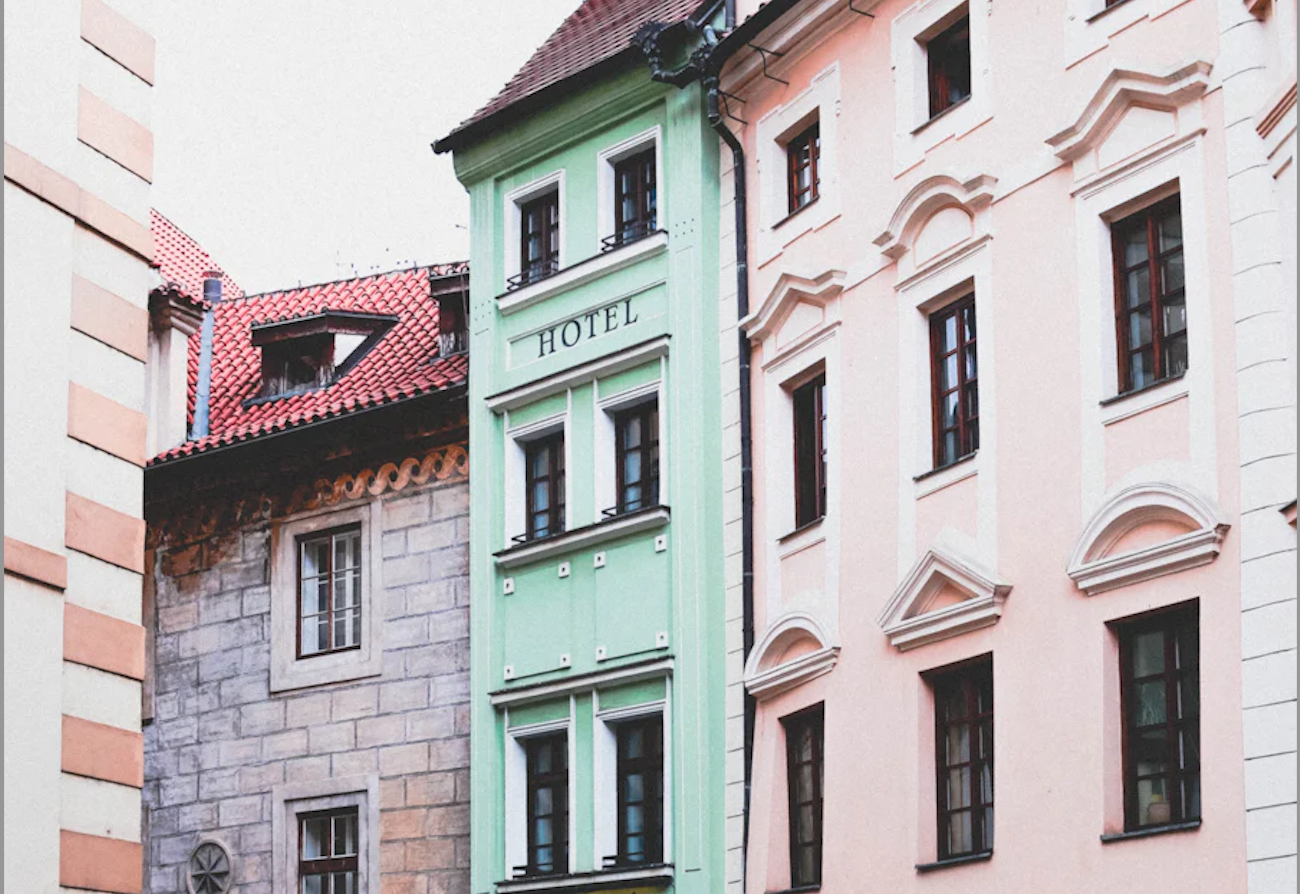While not without controversy, Qatar’s hosting of the 2022 FIFA World Cup is a significant milestone on its journey to becoming a premier league tourism destination. IHM’s editorial team reports.
Next month’s FIFA Word Cup will be one of the biggest sporting events ever in terms of a global TV audience, and it will also mark a watershed moment in Qatar’s status as a tourist destination.
The World Cup will draw more than a million visitors to the Gulf state, which has embarked on a serious building and infrastructure programme to accommodate it. The likes of David Beckham have been brought in to spearhead a comprehensive advertising campaign.
Qatar’s hospitality industry has seen some big names either strengthen or establish their presence, with new properties including those under brands such as St. Regis, Rixos, The Outpost, Waldorf Astoria, The Ned, Chedi, Raffles, Rosewood, LXR and DoubleTree by Hilton brands, among others.
This intense year of development represents a major milestone in Qatar’s goal to welcome six million visitors a year by 2030. It has reportedly spent $200 billion (£177 billion) on infrastructure and stadiums since it won the bid to host the tournament in 2010.
Berthold Trenkel, COO of Qatar Tourism, says: “2022 has been an extraordinary year in Qatar with so many major new hotel and tourism openings. From shopping malls to beach clubs, museums to theme parks, there are now activities and experiences in Qatar for every type of traveller, from every nation, and to suit every budget. With more than one million fans expected to visit for the FIFA World Cup Qatar 2022, we’re proud to be able to offer a true breadth of experiences and entertainment beyond our stadiums, fan festivals and matches.”
It is not just hotel rooms that have been added to accommodate football fans however, as despite the unprecedented building programme, by March of this year Qatar still only had 30,000 hotel rooms, 80 per cent of which had already been booked by Fifa for football teams, officials, and sponsors. The organisers are offering shared rooms in apartments, villas, fan villages and traditional-style tents in the desert. Additionally, two cruise ships are being converted into floating hotels that will be moored at Doha’s port. All these measures combined are expected to add up to 70,000 rooms to the market.
In a statement to the BBC, the country’s Supreme Committee for Delivery & Legacy said the Gulf state would deliver up to 130,000 rooms in time for the tournament. “This is a comfortable inventory for fans, teams and sponsors travelling to the Fifa World Cup Qatar 2022,” it added.
Qatar is the smallest nation by land size ever to stage the World Cup and even non-mathematicians can see that 130,000 rooms are not going to be enough to host more than a million visitors. This is where Qatar’s neighbours are set to benefit. The United Arab Emirates, Saudi Arabia, Kuwait, and Oman will all be operating daily shuttle flights to ferry fans to the host country.
The busiest period of the tournament will be the group stage, when four matches a day will be played in stadiums in and around Doha. Dubai is in pole position, with demand for accommodation soaring, and will be operating almost 50 shuttle flights every day to Doha, which is less than an hour away by air. It will also be hosting one of six international FIFA fan festival events, welcoming 10,000 fans a day.
Ahmed Al Khaja, CEO of Dubai Festivals and Retail Establishment (DFRE), says: “As momentum accelerates ahead of the region’s first FIFA World Cup in Qatar, Dubai is privileged to be chosen as one of three cities globally to host an official flagship FIFA Fan Festival. As we gear up to welcome football fans and sports enthusiasts, this FIFA-endorsed event at Dubai Harbour will further reinforce Dubai’s position as an international events hub and serve as a catalyst to the growth of sports tourism.”
Another consideration for football fans is that, despite Berthold Trenkel’s assertion that there is accommodation to suit every budget, 48 per cent of all Qatar’s hotel rooms are in five-star hotels and 25 per cent are for apartments classified as ‘deluxe’.
A quick scan on a well known OTA for the night of November 21st, when England play their first match, shows the cheapest hotel available is £654 for one night, with one-bedroom apartment rentals starting at £350 per night. A room at the Ritz-Carlton Sharq Village Doha – one of the very few five-star hotels still with availability – will set you back £3,047 for the night
What is not in doubt is the quality of the hotel offer – reviews from recent guests are generally very good. The top five destinations generating reviews on TripAdvisor pre-tournament have been domestic stays (28.23 per cent), the US (17.23 per cent), UK (8.47 per cent), Australia (5.97 per cent) and India (3.76 per cent) and their average accommodation rating score is 4.64 out of five.
The tournament is also a significant demand driver in the Gulf region. Ali Ozbay, regional director of marketing and communications for Rixos Hotels Gulf, says he expects around five to seven per cent of the UAE population to travel to Qatar – “for people to see their favourite teams and players live in action”.
Kostas Nikolaidis, STR’s account executive for the MEA region says: “There is no doubt that Qatar hotels will enjoy record-breaking performance for the upcoming World Cup period. STR’s occupancy on the books for hotels and hotel apartments in Doha is already above 80 per cent for the group stage. Meanwhile, the last two weeks up to the final are about 60 per cent booked, with some fans eagerly awaiting to see if their teams qualify past the group stage before they commit. Such booking levels are already three to four times higher than same time last year. The expectation is that bookings will accelerate as the kick-off date draws near, with the city reaching almost sell-out occupancy levels.”
As well as Qatar’s hotels, the state’s nascent vacation rental sector is also seeing a boom, as well as providing accommodation at a lower price point.
Research from OTA Insight show that the number of short-term rentals advertised in Qatar has increased by 365 per cent from December 2019 to the current year, despite the introduction, when the 2022 World Cup was announced, of a series of new regulations launched centring around licensing and designed to abate the raft of new hosts who could potentially fall short of expected standards in terms of provision, health and safety, environmental concerns and more.
Ramy Morsy, co-founder and CEO of property manager BaytTravel, says: “Qatar Tourism has created a holiday homes licensing system to allow residents to lease their property as a holiday home just in time for the World Cup. From what we’ve seen in the market thousands of individuals have gone for this program, as well as real estate companies within the country working towards supplying accommodations for the World Cup.”
According to AirDNA, during the event (from November 20th to December 20th) “demand (for vacation rentals) is pacing up by 2,600 per cent versus what was on the books during the same period last year in Doha. Demand pacing in Dubai is up 183 per cent Y-O-Y and 294 per cent in Riyadh. In Doha over the length of the event ADRs (booked) are currently pacing at $475 for the length of the event. ADRs peak at the beginning of the event at $530 on Nov 25th and again around the finals on Dec 17th at $559. ADRs are pacing 408 per cent higher than in 2021.”
The company adds: “In other cities seeing an uptick in demand from the World Cup, ADRs are not pacing noticeably higher. Dubai ADRs are at $267, (+1.1 per cent Y-O-Y), Abu Dhabi $128 (-4.2 per cent), Riyadh $182 (-22 per cent). When we look at what is still available for booking, there are still around 250 to 400 entire home/apartment listings available to rent in Doha, but almost all of the private/shared room accommodations are fully booked. For those listings that are still available, prices for entire home/apartment listings reach up to almost $2,000 per night on November 25th.”
Qatar is definitely pulling out all the stops in its bid to use the World Cup as a springboard to become a potential rival to Dubai and Abu Dhabi in the tourism stakes, but it has also generated a considerable amount of controversy.
Its figurehead brand ambassador David Beckham has been labelled “naive” for his advocacy by campaigners who have criticised Qatar’s human rights stance, particularly around LGBTQ+ issues. Qatari authorities have failed to offer assurances that LGBTQ+ fans and players will be safe at the World Cup, prompting some to boycott the tournament. Critics have accused Qatar’s government of conducting a “sports-washing” PR campaign in the build-up to the tournament to detract focus away from non-football issues.
The construction of the infrastructure required for the tournament has also come under scrutiny. Qatar’s ‘kafala system’ is a set of labour laws which allow Qatari individuals or businesses to confiscate migrant workers’ passports and stop them leaving the country.
Human rights groups say this results in developers forcing staff to work in poor conditions for low pay and not allowing them to go home until projects are complete. There have been reports of migrant worker deaths that range from a few dozen to several thousand in the 12 years of preparation for the tournament. The International Trade Union Confederation puts the figure at 7,000 by the time the tournament starts, while the Qatari authorities say there have been three work-related and 34 non-work-related fatalities in that time.
Qatar is pinning its hopes on a successful tournament acting as a shop window to the world, showcasing its undoubted charms and attractions to both World Cup visitors and the watching global billions alike, in a bid to generate a sustainable long-term major tourism industry. The opening ceremony is just over three weeks away but it will be in the years following the tournament that it hopes to see a return to justify its investment.
Reporting by Paul Stevens, Eloise Hanson and George Sell.








